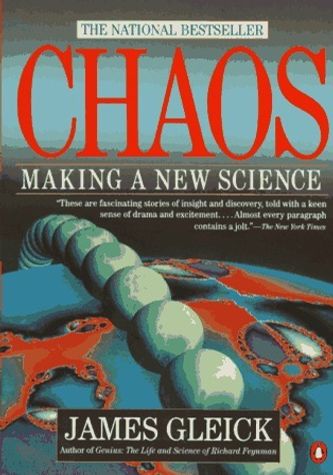
Chaos: Making a New Science
James Gleick
11 Key ideas
29 MINS
4.6 (2.3k)
Did you know that a tiny rounding error in the 1960s sparked a revolution in the way we understand weather, chaos, and predictability?
How did Edward Lorenz's accidental discovery alter our understanding of nature's intricate patterns?
What role did chaos theory pioneers like Benoit Mandelbrot and Robert Stetson Shaw play in revealing the unpredictable beauty of complex systems?
Dive in to learn more about the fascinating world of chaos theory and its profound impact on our view of the universe.
Did you know that a tiny rounding error in the 1960s sparked a revolution in the way we understand weather, chaos, and predictability?
How did Edward Lorenz's accidental discovery alter our understanding of nature's intricate patterns?
What role did chaos theory pioneers like Benoit Mandelbrot and Robert Stetson Shaw play in revealing the unpredictable beauty of complex systems?
Dive in to learn more about the fascinating world of chaos theory and its profound impact on our view of the universe.
Did you know that a tiny rounding error in the 1960s sparked a revolution in the way we understand weather, chaos, and predictability?
How did Edward Lorenz's accidental discovery alter our understanding of nature's intricate patterns?
What role did chaos theory pioneers like Benoit Mandelbrot and Robert Stetson Shaw play in revealing the unpredictable beauty of complex systems?
Dive in to learn more about the fascinating world of chaos theory and its profound impact on our view of the universe.
Key Ideas
Read | Listen - Full summary
About Author
James Gleick is an acclaimed American author and journalist, renowned for his work on the popular science book "Chaos: Making a New Science," published in 1987. This book played a pivotal role in bringing the concepts of chaos theory and complex systems to the general public, blending scientific rigor with accessible storytelling. Gleick's insightful narratives and clear exposition have earned him a place among influential science writers, making complex scientific ideas comprehensible and exciting for readers worldwide. Beyond "Chaos," Gleick has authored several other notable works, further establishing his reputation in the realms of science and technology writing.
Learn Key Ideas from 9000+
non-fiction books in 15min.


